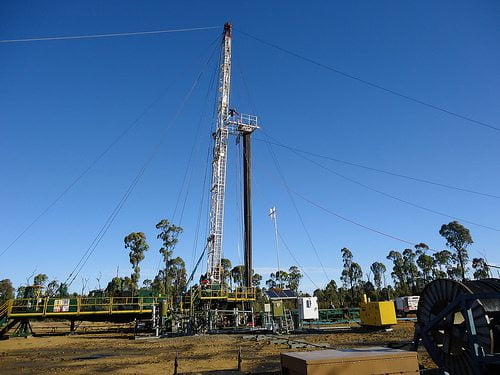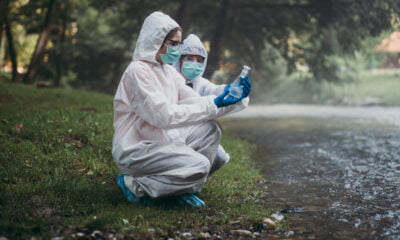

Energy
More research needed into health impacts of fracking, experts warn
Much more needs to be done to investigate the impacts of fracking on human health to ensure that industry regulation will adequately protect the British public, experts have warned.
Writing in an editorial piece for the British Medical Journal, experts from the multi-disciplinary group Physicians Scientists and Engineers for Healthy Energy warn that efforts to understand the implications of shale gas developments, which often occur near human populations, have fallen short.
Dr Seth Shonkoff, executive director of the group, warns that existing studies have focused on mostly hypothetical regulatory and engineering solutions rather than scientific evidence.
A Public Health England draft report on the extraction of shale gas, published in October, concluded that the health risks posed by shale gas extraction are low if operations are properly run and regulated.
This report does “recognise that many uncertainties surround the public health implications”, but there are “problems with its conclusions”, Shonkoff says.
“The review appropriately acknowledges differences in geology and regulation between the United States and the United Kingdom,” the article says.
“Yet, in a leap of faith unsubstantiated by scientific evidence, its authors suggest that many of the environmental and public health problems experienced in the US would probably not apply to the UK.
“Unfortunately, the conclusion that shale gas operations present a low risk to public health is not substantiated by the literature.”
Shonkoff argues that Public Health England mistakenly assume that some observed impacts of fracking developments in the US are the result of poor management, and would be prevented in the UK.
“Best practices”, the article argues, “should not be mistaken for actual practices.”
Environmentalists, scientists and governments across the world hold a number of concerns over the possible impacts of fracking.
The process works by fracturing rocks with water and chemicals, releasing the natural gas contained within them. It has been linked to water contamination, methane leakage and an increased risk of earthquakes.
Investors have also warned that shale gas may prove an unwise investment as efforts to curb climate change are increased. The Intergovernmental Panel on Climate Change adds that shale gas can only be used to reduce greenhouse gas emissions in the short-term.
Despite this, the UK government is keen to kick off a fracking boom, comparable to the one that lowered energy bills in the US, by offering sizable tax-breaks to the industry.
Photo: Lock the Gate Alliance via Flickr
Further reading:
‘Freedom to frack’ on private land sparks outrage
Green MP Caroline Lucas cleared of anti-fracking protest charges
Poll: two-thirds of Britons favour wind power over fracking
Researchers find fracking safety data is ‘sparse’ across Europe
Government’s fracking focus threatens renewables investment, experts say


 Environment12 months ago
Environment12 months agoAre Polymer Banknotes: an Eco-Friendly Trend or a Groundswell?

 Features11 months ago
Features11 months agoEco-Friendly Cryptocurrencies: Sustainable Investment Choices

 Features12 months ago
Features12 months agoEco-Friendly Crypto Traders Must Find the Right Exchange

 Energy11 months ago
Energy11 months agoThe Growing Role of Solar Panels in Ireland’s Energy Future




























